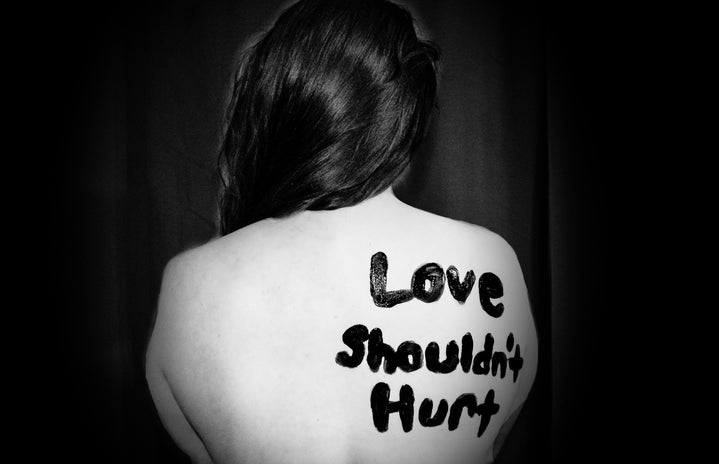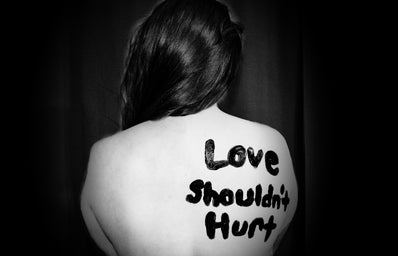TW: This article will be discussing toxic/abusive relationships.
Letting go of someone is tough. After weeks, months, and even years of opening up to someone, sharing the life stories you couldn’t tell even your closest friends, and allowing them to pry open your locked door of vulnerability—there comes a time when it’s right to leave, whether you understand why or not at that moment.
It can be difficult to tell when you’ve been taken advantage of. You can get such tunnel vision that you become convinced this person is right for you and deserves to belong in your life and you ignore all the red flags. You think things could not possibly be better without this person, that leaving them would only leave you even more hurt than you are by letting them stay. But that’s not the case. When someone abuses your space—physically or mentally—it becomes difficult to trust again. You become uncomfortable in your own space, uncomfortable in your own body.
Toxic relationships come in different forms and affect us in different ways. Some can be difficult to detach from, especially when they’re with someone blood-related, but even if they’re not, the strain it puts on your mental and physical health can be exhausting. Whether it was their intention to hurt you or not, you deserve to stand your ground. You deserve to tell what’s right from wrong and have no one gaslight you into thinking otherwise in the process. You’re not being overly sensitive or too attached; you’re being kind to yourself by acknowledging your feelings and being strong enough to address them out loud.
Healing isn’t linear. Convincing yourself that you’re over someone for the sake of moving on can be so forced that one day, you break. We are held to a high standard that expects us to move on quickly, especially in a world that never seems to stop, but deflecting our feelings and forcing ourselves to ignore them only prolongs the pain.
It’s also hard to leave when the person makes it difficult. The door can be closed on your first try, but sometimes it’s left a crack open. The dysfunction in a toxic relationship causes us fear for our safety, creates a dent in our self-esteem, and can tear into the trust we have in other relationships. Going back and forth between staying with this person and leaving them makes sense to us, but leaving for even one instance of toxic behavior is part of what we need to heal. Leaving can be for any reason. It can be as complex or as simple as outgrowing the person.
This doesn’t mean all the positive memories we want to hold onto no longer exist—we can still remember a time when we felt genuinely happy with another person—but compartmentalizing these moments from the negatives shows you how they could be and should be treating you.
And throughout the process of healing, you may have to restrain yourself from reaching out to this person or forgiving them easily. The way they react to you leaving them is a reflection of how they would’ve treated you moving forward. Someone who disrespects your wishes of being left alone to process and understand what they’ve done to you is a person who is selfish. You have so much to give to someone, so much good to provide to this world, that this person wants for themselves, and they are willing to disrespect you and your boundaries to make sure no one else gets this. This can take the form of pushing you away from your close friends and family, degrading you, saying, “You’ll never get someone as good as me,” or threatening you because they know you’re vulnerable.
There are ways to get out of it. I can’t speak for others’ experiences, but the people closest to me knew what it took to get me out of this toxic space. I had doubted the simple solution of just ghosting them, erasing them from my memory, until one day I felt a compelling strength that let me do so. However, I couldn’t leave without an explanation. I told this person why I was leaving them so suddenly and how important it was for me to. But you don’t have to.
The day you realize you’re better off without them is a powerful day. You regain your composure, your strength and your control over your feelings. You may never understand why someone was out to hurt you, but it’s never worth seeking a right answer—you’ll only drive yourself mad.

